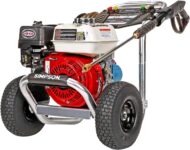
Simpson Pressure Washer vs DeWalt: Comparing the Best Pressure Washers
Who wins the grime war: commercial-grade brawn or homeowner-friendly smarts?
A good pressure washer can turn a weekend slog into a 30‑minute win. Serious cleaning power changes what a homeowner or pro can tackle.
Choosing a Simpson pressure washer vs DeWalt isn’t only about PSI — engines, pumps, and portability matter too. The right pick saves time and frustration.
Top Picks




Simpson 3400 PSI Aluminum Commercial Washer
Delivers professional-grade pressure and flow for demanding jobs while remaining lighter and more corrosion-resistant than many steel-frame competitors. The Honda GX200 and CAT triplex pump combination provide reliable, sustained cleaning power, though the stiff hose and uneven dealer service experiences are notable trade-offs.
Purpose and overview
The Aluminum Series unit is aimed at contractors and demanding users who need sustained pressure and durability on job sites. It pairs a Honda GX200 commercial-series engine with a CAT industrial triplex plunger pump to deliver 3400 PSI at 2.5 GPM—enough for concrete, paint prep, equipment maintenance, and other professionals’ tasks.
Key features and benefits
These features make it a solid choice for contractors who move between sites and need a machine that withstands heavy use without the weight penalty of steel frames.
Real-world performance and practical notes
Users commonly report that the engine starts reliably and the unit provides excellent cleaning power at less-than-full throttle for many tasks. The thermal-relief on the pump and the heavy-duty components reduce downtime for overheating or light abuse. That said, the included hose is often described as too stiff for easy handling; many operators swap it for a more flexible aftermarket hose to improve ergonomics.
Limitations and who should buy it
Simpson MegaShot 3200 PSI Residential Washer
Offers a homeowner-friendly combination of strong cleaning performance and manageable size, driven by a Honda GC190 engine and a 3200 PSI rating. Generally dependable and easy to store, though a few owners note minor fitment and accessory issues.
Purpose and overview
The MegaShot MSH3125 is Simpson’s homeowner-focused pressure washer that brings near-commercial pressure (3200 PSI) into a compact, easy-to-handle package. It’s built around a Honda GC190 engine and an OEM axial cam pump that delivers 2.5 GPM—enough power for driveways, siding, decks, and vehicle cleaning without the footprint of larger commercial machines.
Key features and what buyers get
The compact frame and pneumatic wheels make it easier to store and move around the yard than larger commercial units, yet the power output lets it tackle tough homeowner jobs quickly.
Practical use and considerations
In everyday use this model earns praise for starting easily and cleaning effectively—users report fast patio and driveway work when paired with a surface cleaner. However, some buyers have encountered small issues: a wand bracket that won’t hold securely, short handle length that forces taller users to stoop, and a minority of units with hose-to-pump adapter leaks. Several owners fixed or improved these by swapping a longer wand or upgrading hose fittings.
Who should buy this
DEWALT 2400 PSI Corded Electric Washer
Balances portability, useful onboard storage, and enough pressure for cars, patios, and siding without the complexity of a gas machine. Its 1.1 GPM flow limits heavy-duty cleaning, so it’s better suited to regular homeowner maintenance than deep concrete restoration.
Purpose and overview
The DEWALT 2400 PSI corded electric cleaner is aimed at homeowners and small contractors who prefer the convenience of plug-in operation. With a 2400 PSI peak and 1.1 GPM, it’s designed to make routine cleaning—cars, siding, decks—quick and straightforward without fuel mixing or regular engine upkeep.
Key features and ergonomics
Users appreciate the device for its organization and transportability; the nozzle selection and Turbo tip speed up common tasks. The extended power cord and hose length reduce the need for extension cords or moving the unit frequently.
Practical performance and limits
The machine is quiet and low-maintenance compared with gas washers, but the 1.1 GPM flow rate means it simply moves less water per minute than gas commercial machines. For homeowners who clean cars, decks, and patios occasionally, that trade-off is acceptable—it’s faster to set up and lighter on upkeep.
Who should choose this
DeWalt DWPW3000 3000 PSI Electric Washer
Provides strong cleaning output and a compact, storage-friendly shape when it runs correctly. Several owners report early failures or tripping internal protection, so reliability can be inconsistent across units.
Purpose and overview
This DeWalt-labeled 3000 PSI electric offering targets homeowners and DIYers who want strong cleaning performance without the maintenance of a gas engine. It promises high-pressure output in a compact package that’s intended to be easy to store and handle.
Key features and what it delivers
When it behaves as intended, the machine cleans very well and is easier to use than many small gas washers. Its shape and storage features are repeatedly praised by owners who value a tidy garage.
Reliability and practical caveats
A consistent theme in user reports is a split between units that work well and units that exhibit electrical or internal breaker failures shortly after first use. Other common complaints are a cheap-feeling hose that kinks and nozzles that can fall out of the wand. If choosing this unit, buyers should inspect for robust return/repair options and consider upgrading the hose and wand fittings early.
Who this is for
Final Thoughts
Best overall for pros and heavy-duty work: Simpson 3400 PSI Aluminum Commercial Washer. It pairs a Honda GX200 engine with a CAT triplex pump to deliver sustained pressure and flow for decks, driveways, fleet vehicles, and jobsite cleanup. It’s lighter than comparable steel-frame units and resists corrosion, which makes it a solid long-term choice for contractors and frequent users.
Best pick for most homeowners who want real power without bulky gear: Simpson MegaShot 3200 PSI Residential Washer. It uses a Honda GC190 engine to hit a sweet spot of strong cleaning performance and manageable size. Ideal for siding, concrete, and occasional stain removal — it’s easier to store and handle than commercial rigs while still doing serious work.
Buying and Using Pressure Washers: A Practical Guide
Gas vs Electric — pick by frequency and tasks
Gas models (Simpson 3400, Simpson MegaShot 3200) shine for frequent, heavy-duty work. They deliver higher continuous pressure and greater flow, making them better for concrete, decks, and pro jobs. Electric corded units (DeWalt 2400) are quieter, lighter, and require less routine maintenance — good for cars, light siding, and homeowners who clean infrequently.
Match machine specs to real tasks
Durability: what to look for beyond the sticker
Engine brand and pump type are the two clearest durability signals. Honda engines (GX200 on the Simpson 3400; GC190 on the MegaShot) have a strong service history. Triplex pumps (like the CAT on the Simpson 3400) are more forgiving under sustained loads than axial cam pumps. Aluminum frames resist rust and reduce weight — practical for users who transport units frequently.
Maintenance checklist (keep it running)
Accessories, safety, and storage
Choosing between Simpson and DeWalt comes down to intended use. For heavy, regular work, trust proven gas engines and triplex pumps. For lighter, infrequent jobs, choose an electric for convenience and lower upkeep. Practical choices and simple maintenance extend life and make each cleaning session faster and less frustrating.
FAQ
If someone cleans patios, concrete driveways, or prepares surfaces for staining — repeatedly — a gas unit (Simpson 3400 or MegaShot 3200) is the right tool because it delivers higher PSI and GPM. For cars, light siding cleaning, and occasional maintenance, the DeWalt 2400 PSI corded electric is quieter, simpler, and requires less maintenance.
PSI measures force; GPM measures volume. High PSI breaks dirt loose; high GPM washes it away faster. For heavy stains on concrete, prioritize both (higher PSI + decent GPM). For detail work like cars and furniture, moderate PSI with lower GPM is safer.
Yes. Aluminum frames cut weight and resist rust better than steel. For users who move the unit often or store it in damp places, aluminum keeps the unit lighter and more corrosion-resistant over time.
The DWPW3000 is compact and powerful when it runs, but several units trip internal protection or fail early. That suggests inconsistent quality control or sensitive electronics. Buyers should check return policies and consider the more proven DeWalt corded 2400 for reliability.
Start with a 25° general-purpose nozzle, a 15° for tougher stains, and a 40° for delicate surfaces or rinsing. Add a surface cleaner for large flat areas and a foam cannon for soap-based tasks. A quality 25–50' hose with proper fittings reduces hassle and pressure loss.
Yes, SIMPSON is considered a good pressure washer brand. They’re well-known for durable construction, strong Honda and Kohler engine options, and professional-grade pumps. SIMPSON pressure washers are widely used by both homeowners and contractors because they offer reliable cleaning power, long service life, and good value for the performance.
SIMPSON Cleaning is an American company (based in Wisconsin, USA) that manufactures pressure washers.
Many of their models use engines from Honda, Kohler, CRX, or SIMPSON’s own engines, but the machines themselves are designed and built by SIMPSON.
For example, the popular SIMPSON MegaShot and PowerShot series are equipped with Honda GC or GX series engines, which provide proven reliability, but the rest of the unit (frame, pump, assembly) is SIMPSON’s work.
So in short: SIMPSON builds the pressure washer; Honda only supplies some of the engines.



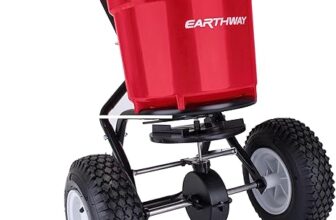
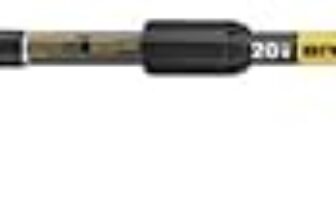
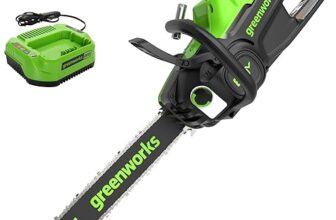
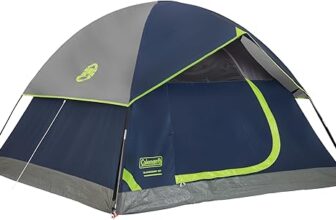

Quick question: how noisy is the Simpson 3400 vs the DeWalt? I’m in a neighborhood with noise rules and don’t want to upset the neighbors.
Also, any maintenance quirks I should be aware of for the Honda engine compared to electrics?
If you need to do quick morning jobs quietly, DeWalt or another electric is best. Gas is for power, not stealth.
Gas machines (Simpson 3400) are noticeably louder than electric (DeWalt). For noise-sensitive neighborhoods, the DeWalt is quieter. Honda engines are very reliable but need routine oil changes and fuel care; electrics are lower maintenance overall.
I’m curious about the CAT triplex pump in the Simpson 3400 — does that really extend pump life compared to axial cam pumps?
Also, how easy are replacement pumps to find if something goes wrong down the line?
Thanks — seems like I’ll earmark a bit more for longevity. Better than swapping pumps every season.
Had a triplex replaced once — pricier but lasted a long time. Worth the extra cost if you run the machine a lot.
Triplex pumps are generally more durable and maintain pressure better under continuous use than many axial cam pumps. They’re common on higher-end units, and aftermarket/OEM replacements are usually available from parts suppliers.
DeWalt electric at 2400 PSI and 1.1 GPM seems perfect for my car and patio furniture. Low maintenance = yes please.
Agree — if you’re not doing concrete restoration, DeWalt is convenient. The onboard storage is clutch for small jobs.
Right — the DeWalt is aimed at light-to-medium tasks. If you later find you need more flow for bigger stains, you’d look at higher GPM gas models.
I like the DeWalt for the way they pack storage and portability into the design. Not as macho as the Simpsons, but for regular homeowner tasks it’s ideal.
Also, electric means no carburetor drama in winter — big plus in my book.
When using extension cords, pick a heavy-duty outdoor-rated cord and keep voltage drop in mind — lower gauge (thicker) is better.
It’s okay for small yards — you might need an extension cord or to move the unit a couple times for larger areas.
Exactly — DeWalt targets users who value convenience and lower maintenance over raw power.
Does the DeWalt have decent reach with the included hose? I’m concerned about extension cords and such.
Trying to decide: I need to clean a badly stained concrete driveway a couple times a year. Would the Simpson 3200 be enough or should I go for the 3400?
I don’t need commercial-level portability but want results that don’t take forever.
Any advice?
For driveway concrete, PSI is useful but GPM matters a lot for rinsing away grime. The 3200 (2.5 GPM) is a good middle ground; the 3400 gives more sustained power if you have deeply embedded stains or larger area. If budget allows, 3400 is more future-proof.
I’d go 3400 if you want faster results and less elbow grease. 3200 will work but may take longer.
Thanks — leaning toward the 3400 now. Appreciate the GPM tip!
My two cents after using a Simpson 3400 for 2 seasons:
– Power: unreal. Never struggled to remove oil stains or caked mud.
– Portability: lighter than steel-frame units but still not a backpack.
– Hose: OMG that hose is SO stiff when it’s cold — almost unrollable. Had to buy a softer replacement.
– Dealer: one dealer shipped the wrong nozzle set, another was fine. Arghhh, inconsistent.
Still, overall I’m happy. Worth the price if you need the cleaning muscle. 🙂
Thanks Jason — that lines up with our notes. Replacing the hose with a more flexible one often solves the cold-weather handling issue.
Where did you buy the softer hose? Amazon has a few options but some are overpriced.
Good tip on hose size — 3/8″ is common and balances flexibility with flow capacity.
Stiff hoses = worst part of cold mornings. 😂
I grabbed a 3/8″ flexible rubber hose from a local shop — much easier to manage. Cost about $40.
Heads up on the SHELL AC 3000 PSI — sounds good on paper but reliability reports worry me.
A couple of friends had units trip protection after a few uses, and returning them was a pain.
If you’re looking for compact electric, it might be tempting, but I’d check return policy and extended warranty first.
Smart move, Priya — sometimes the slightly higher upfront cost buys peace of mind and fewer service hassles.
I had one work fine for 8 months then it died — customer support was slow. Not worth the risk for me anymore.
Good caution, David. The Shell AC showed mixed reliability in our review — if you go that route, keep the receipt and test thoroughly within the return window.
Thanks for the warning — I’ll probably pay a bit more for DeWalt to avoid that gamble.
If I wanted a pressure washer that starts on the first pull and doesn’t yap like a lawnmower, what do I pick? Asking for a friend (me). 😂
Also, why do gas units still exist? Aren’t electrics getting better?
My ‘friend’ owns a small generator and a Simpson — starts fine with proper tune-ups. But if you’re ~lazy~ I mean efficient, get an electric 😂
Electric units are improving but for high-PSI and high-GPM tasks, gas still wins in raw cleaning power and mobility. For your ‘friend’ who hates pull-starts, look for electric or gas models with electric start or recoil with easy-choke systems.
I’ve had my eye on the Simpson 3400 for a while — the Honda GX200 + CAT triplex pump combo sounds like a dream for heavy jobs.
Pros: professional-grade power, lighter aluminum frame, great flow.
Cons: heard the 25-ft hose is super stiff and some dealer support is hit-or-miss.
If you do driveways and big siding jobs often, it’s probably worth the investment.
Anyone else using it for commercial-ish work?
I use the 3400 on rental properties — solid machine. The dealer issue made me buy extra fittings and a longer warranty. Worth it for the uptime.
Curious — what hose did you replace it with, Tom? I don’t want to wrestle mine every job.
Glad you liked the write-up, Anna. For commercial work the GX200 + triplex pump really keeps pressure steady during long runs. The hose stiffness can be mitigated with a different hose or a quick warm-up in the sun.
Quick buying rule I follow:
– PSI = peak force for stubborn spots
– GPM = how fast you clear an area
So Simpson 3400 (2.5 GPM) is better for big jobs than DeWalt (1.1 GPM) even though both can spray at decent pressures.
If you have large surfaces, choose higher GPM even if PSI drops a bit; it saves time and effort.
No problem — also consider nozzle selection; a 25-degree tip is a workhorse for most jobs.
This is the kind of simple breakdown that helps — thank you!
Good question, Mason. PSI is the main factor for surface damage, but higher GPM can rinse away protective residues faster. Use wider spray tips and keep distance to reduce surface risk.
Question: does increasing GPM ever risk damaging surfaces more than PSI? I thought pressure = damage risk.
Nicely put, Carlos. We always try to emphasize flow (GPM) alongside PSI when recommending machines for large-area cleaning.
Bought the SIMPSON 3200PSI (GC190) last summer and it’s been a champ for everything around the house — deck, siding, car, and even the grill.
Love that it’s powerful but still compact enough to store in the garage.
A few minor fitment issues with accessories at first, but swapped a couple of fittings and all good.
If you want that power without hauling a full commercial rig, this hits the sweet spot.
10/10 for homeowners imo 😄
Evan — just swapped the spray gun connector to match my older hose and got rid of a cheap o-ring. Took 10 mins.
Good tip from Sarah — simple accessory mismatches are common but usually easy to fix with standard adapters.
Lol @10/10 — I’ll take your word for it. Buying one this weekend.
Which fittings did you replace? I’m deciding between the 3200 and DeWalt and want to know the hassle level.
Thanks for sharing your experience, Sarah. The 3200/GC190 combo is exactly what we had in mind for balance — glad it worked out after some minor tweaks.